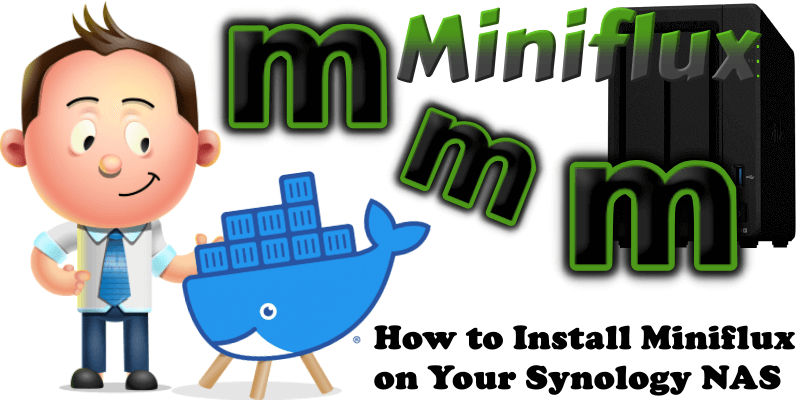
Miniflux is a minimalist feed reader. It’s simple, fast, lightweight and very easy to use. Miniflux is compiled statically without external dependencies, drop the binary on your server and you are done. In this step by step guide I will show you how to install Miniflux on your Synology NAS using Docker and Portainer.
This guide works perfectly with the latest Miniflux v2.2.17 release.
STEP 1
Please Support My work by Making a Donation.
STEP 2
Install Portainer using my step by step guide. If you already have Portainer installed on your Synology NAS, skip this STEP. Attention: Make sure you have installed the latest Portainer version.
STEP 3
Go to File Station and open the docker folder. Inside the docker folder, create one new folder and name it minifluxdb. Follow the instructions in the image below.
Note: Be careful to enter only lowercase, not uppercase letters.
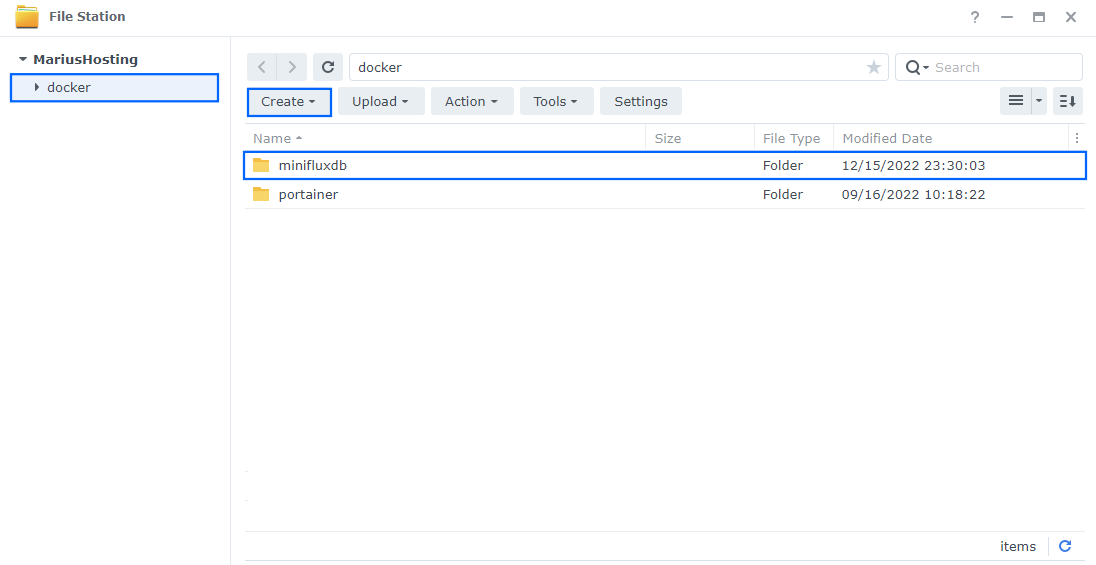
STEP 4
Log into Portainer using your username and password. On the left sidebar in Portainer, click on Home then Live connect. Follow the instructions in the image below.

On the left sidebar in Portainer, click on Stacks then + Add stack. Follow the instructions in the image below.

STEP 5
In the Name field type in miniflux. Follow the instructions in the image below.
services:
db:
image: postgres:18
container_name: Miniflux-DB
hostname: miniflux-db
security_opt:
- no-new-privileges:true
healthcheck:
test: ["CMD", "pg_isready", "-q", "-d", "miniflux", "-U", "minifluxuser"]
timeout: 45s
interval: 10s
retries: 10
volumes:
- /volume1/docker/minifluxdb:/var/lib/postgresql:rw
environment:
POSTGRES_DB: miniflux
POSTGRES_USER: minifluxuser
POSTGRES_PASSWORD: minifluxpass
restart: on-failure:5
miniflux:
image: miniflux/miniflux:latest
container_name: Miniflux
hostname: miniflux
security_opt:
- no-new-privileges:true
healthcheck:
test: ["CMD", "/usr/bin/miniflux", "-healthcheck", "auto"]
user: 1026:100
ports:
- 8645:8080
environment:
DATABASE_URL: postgres://minifluxuser:minifluxpass@miniflux-db/miniflux?sslmode=disable
RUN_MIGRATIONS: 1
CREATE_ADMIN: 1
ADMIN_USERNAME: marius
ADMIN_PASSWORD: mariushosting
restart: on-failure:5
depends_on:
db:
condition: service_started
Note: Before you paste the code above in the Web editor area below, change the value numbers for user with your own UID and GID values. (Follow my step by step guide on how to do this.) 1026 is my personal UID value and 100 is my personal GID value. You have to type in your own values.
Note: Before you paste the code above in the Web editor area below, change the value for ADMIN_USERNAME. Type in your own username. marius is an example for a username.
Note: Before you paste the code above in the Web editor area below, change the value for ADMIN_PASSWORD. Type in your own password. mariushosting is an example for a password. ⚠️Warning: Do NOT use passwords with special characters.
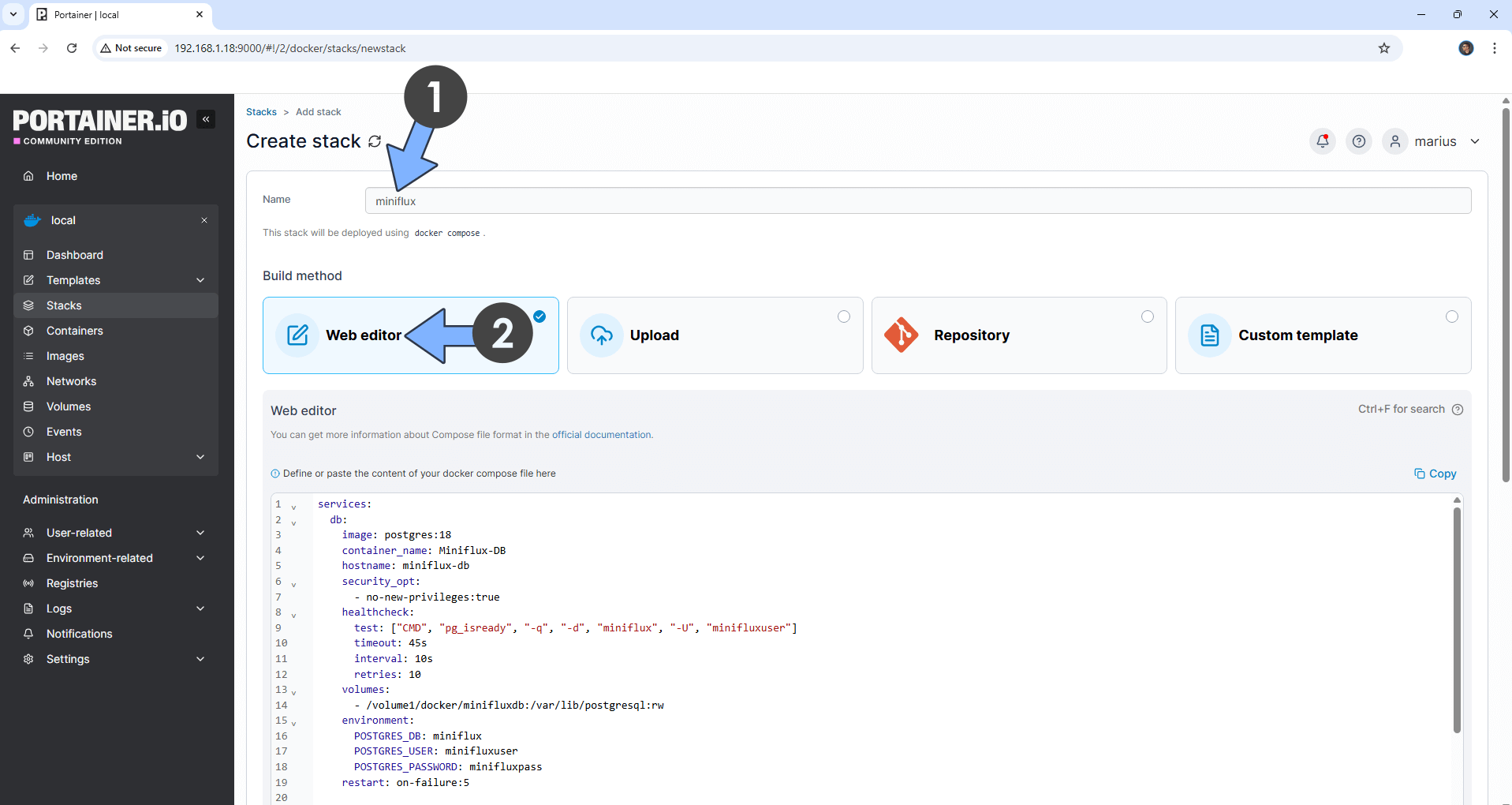
STEP 6
Scroll down on the page until you see a button named Deploy the stack. Click on it. Follow the instructions in the image below. The installation process can take up to a few minutes. It will depend on your Internet speed connection.
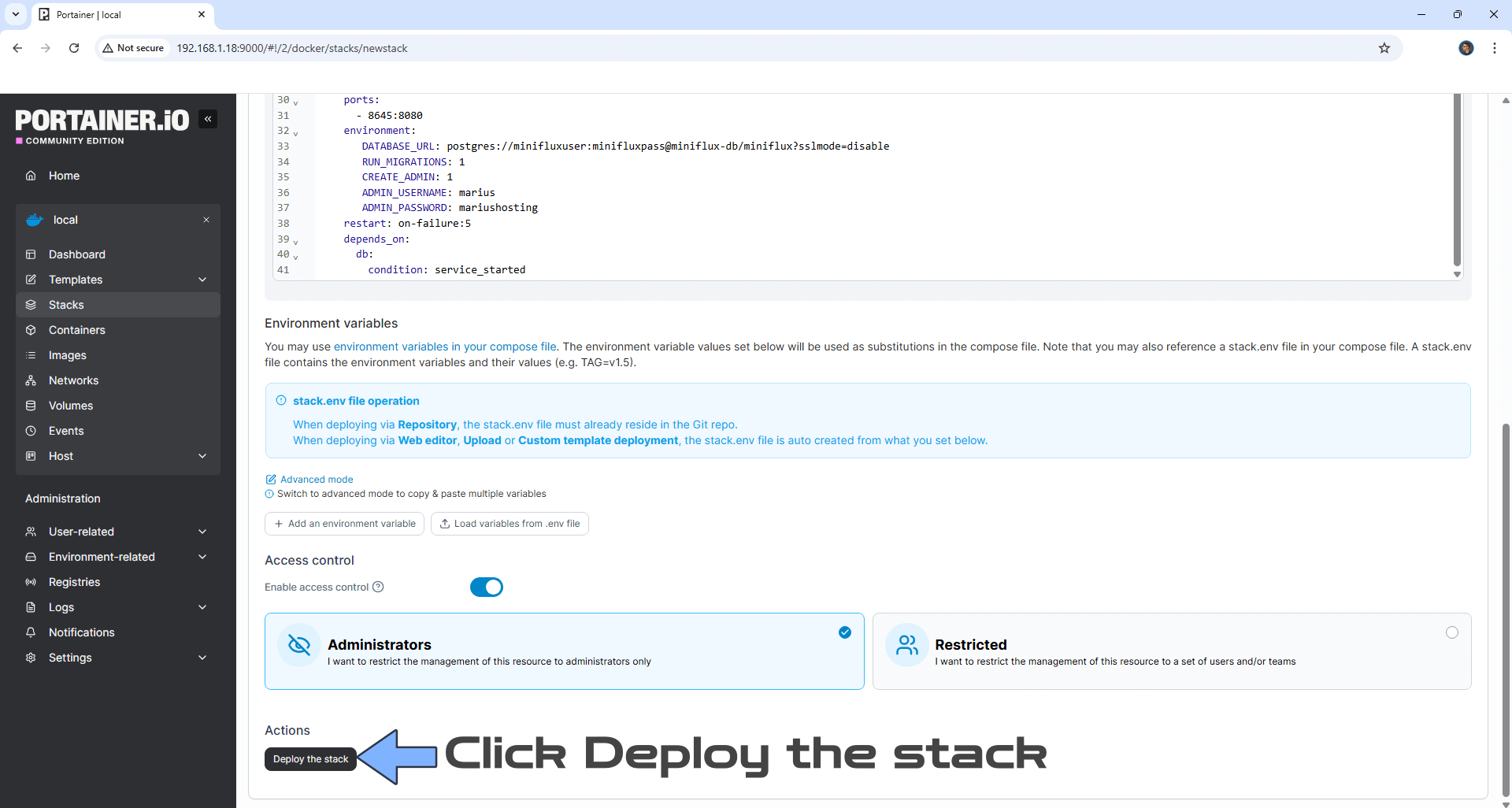
STEP 7
If everything goes right, you will see the following message at the top right of your screen: “Success Stack successfully deployed“.

STEP 8
🟢Please Support My work by Making a Donation. Almost 99,9% of the people that install something using my guides forget to support my work, or just ignore STEP 1. I’ve been very honest about this aspect of my work since the beginning: I don’t run any ADS, I don’t require subscriptions, paid or otherwise, I don’t collect IPs, emails, and I don’t have any referral links from Amazon or other merchants. I also don’t have any POP-UPs or COOKIES. I have repeatedly been told over the years how much I have contributed to the community. It’s something I love doing and have been honest about my passion since the beginning. But I also Need The Community to Support me Back to be able to continue doing this work.
STEP 9
The installation process can take up to a few seconds/minutes. It will depend on your Internet speed connection. Now open your browser and type in http://Synology-ip-address:8645 Type in your own Username (ADMIN_USERNAME) and your own Password (ADMIN_PASSWORD) that you have previously added at STEP 5, then click Login. Follow the instructions in the image below.
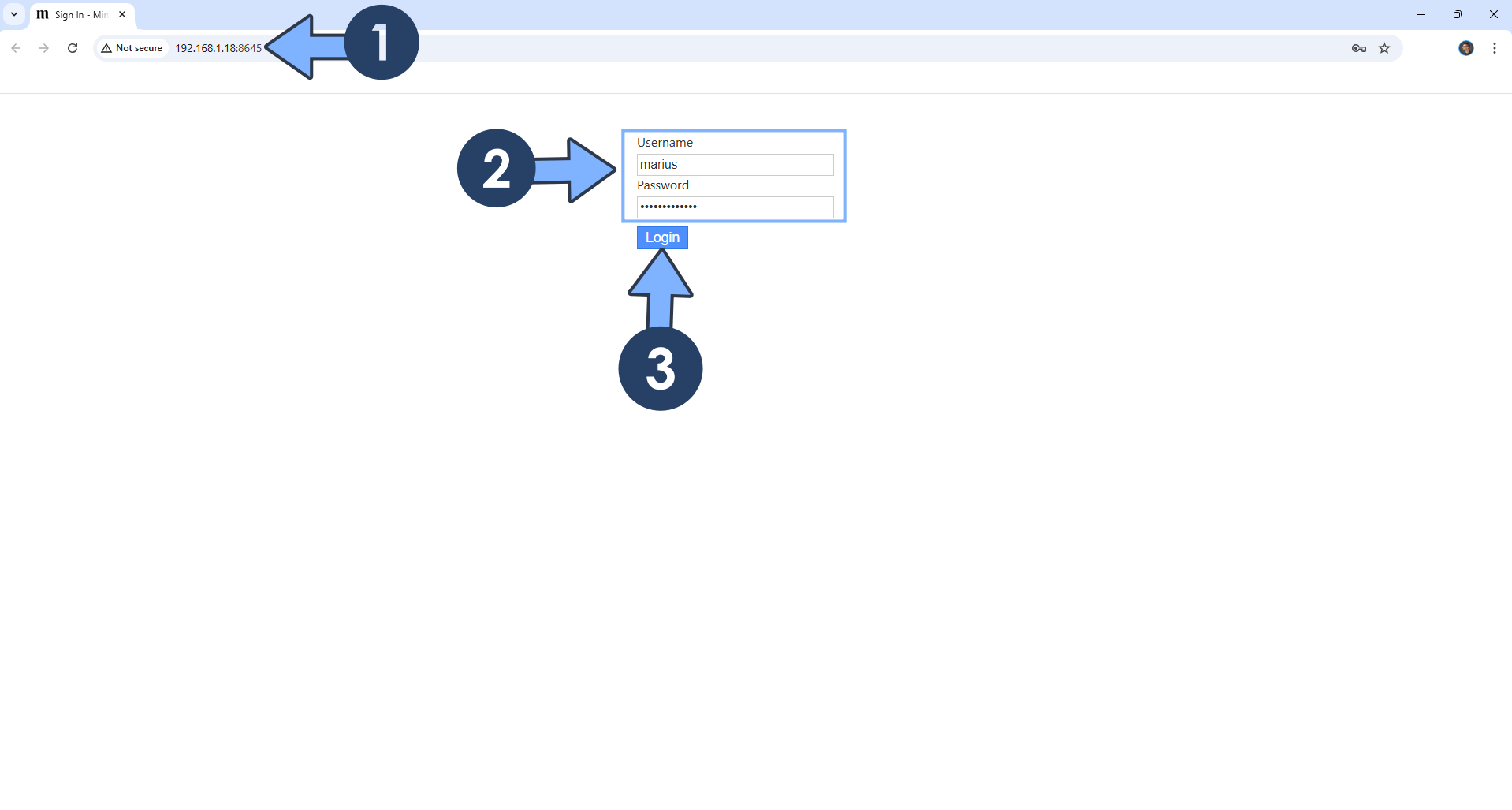
STEP 10
Click the Settings tab, then scroll down the page. Follow the instructions in the image below.
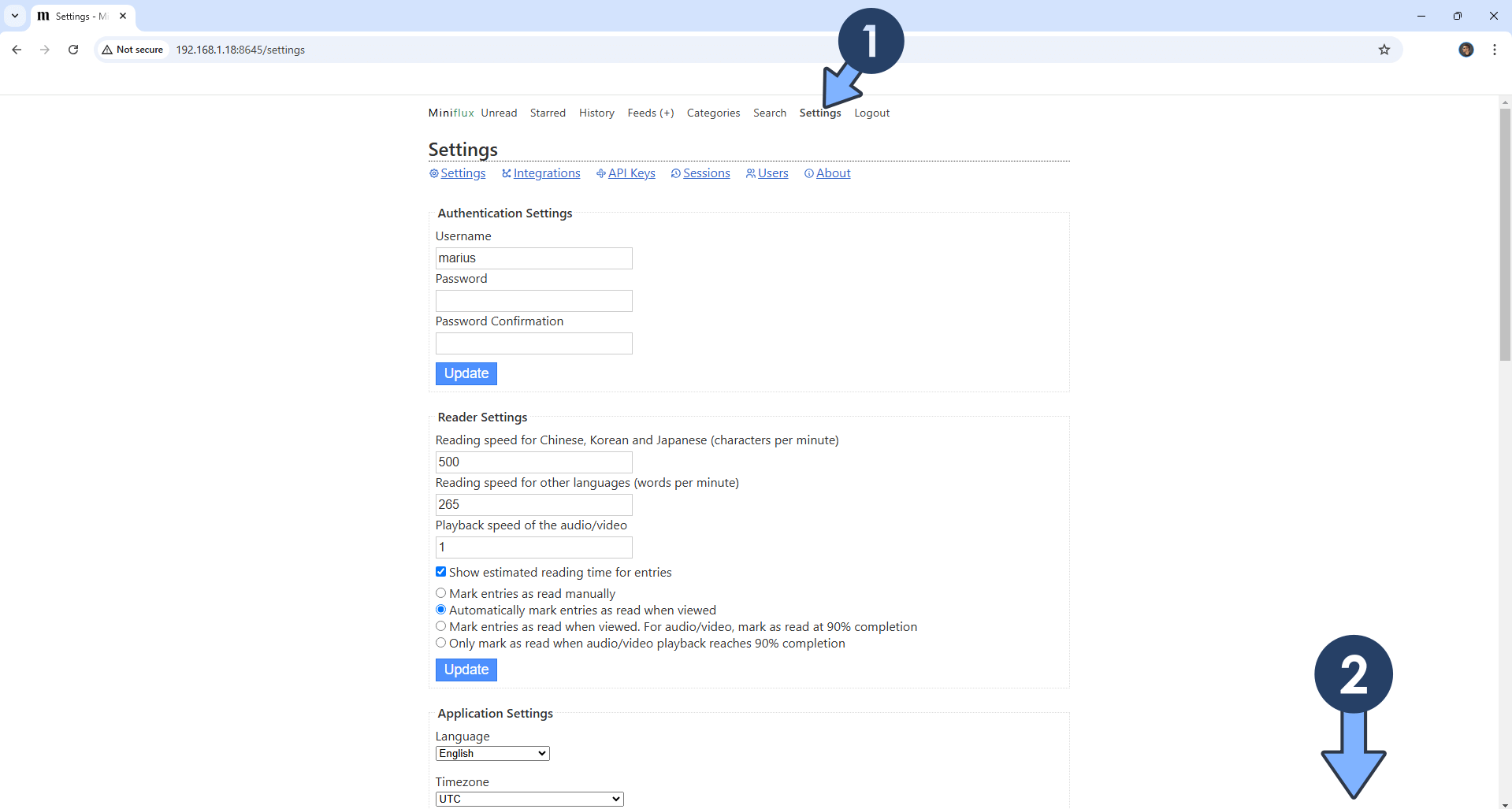
STEP 11
Change the Timezone and, if you want to, switch to a dark theme. Scroll down the page. Follow the instructions in the image below.
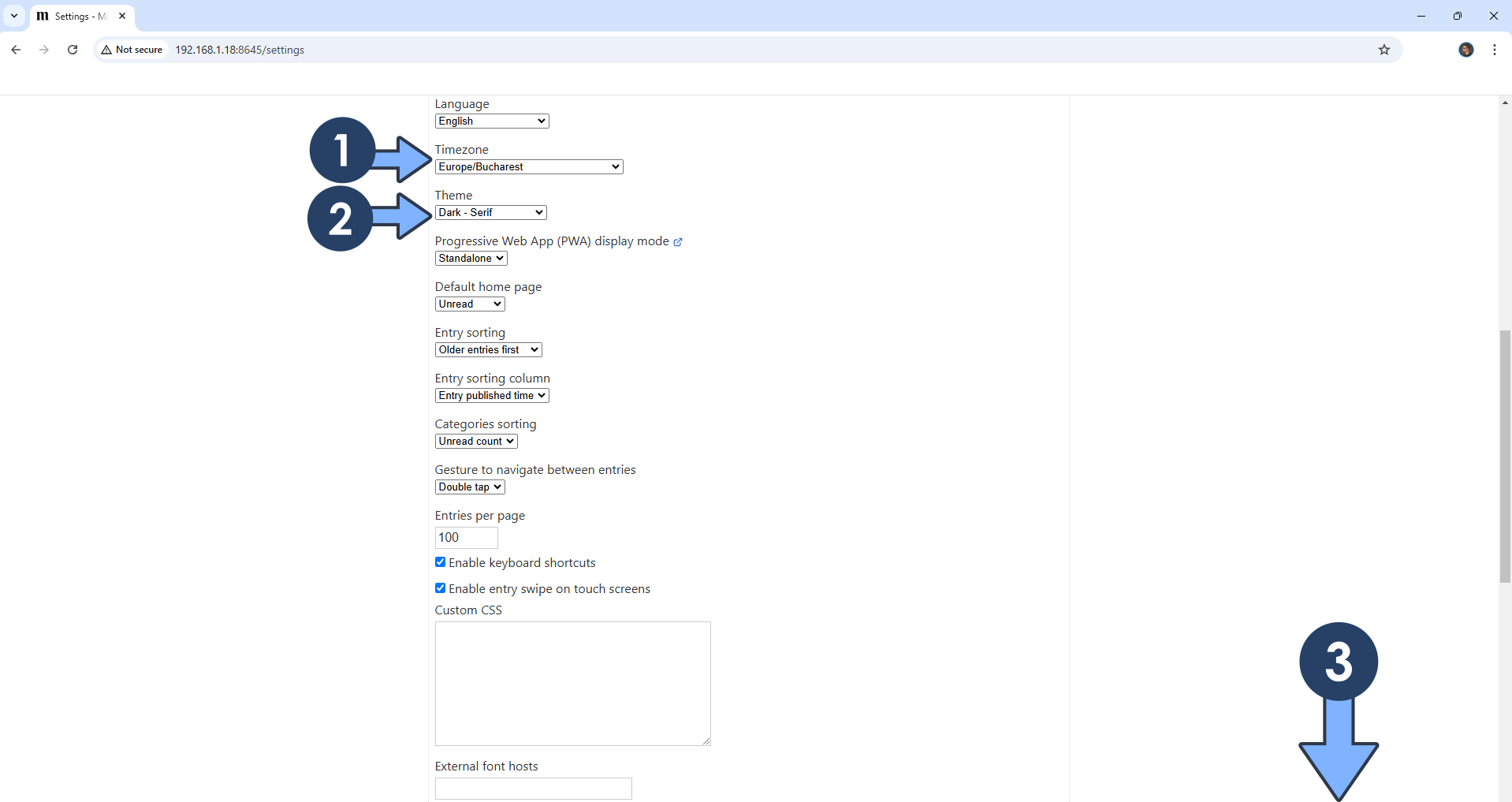
STEP 12
Click Update. Follow the instructions in the image below.
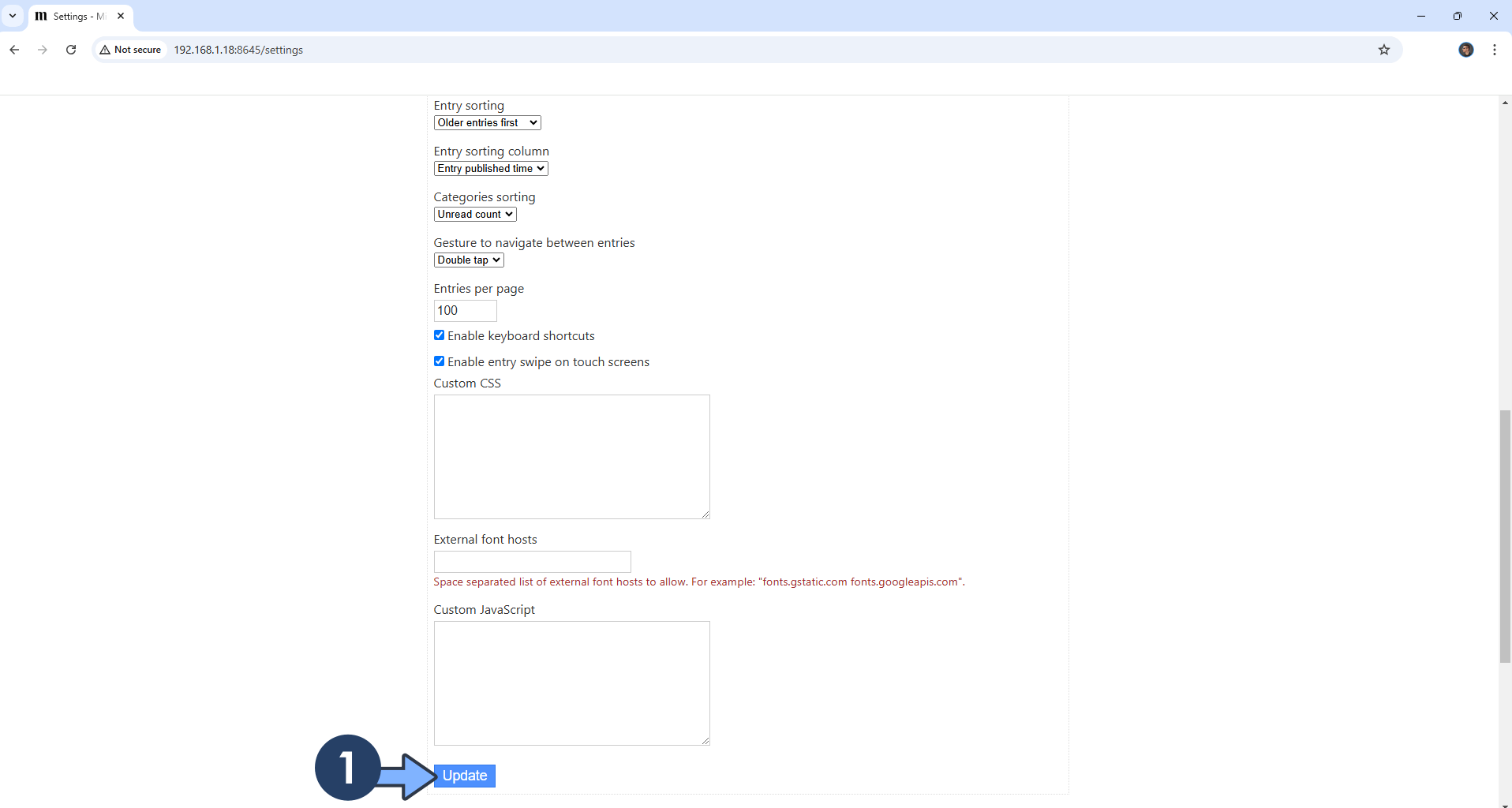
STEP 13
Click the Feeds (+) tab. Type in the URL feed that you like, then click Find a feed. Follow the instructions in the image below.
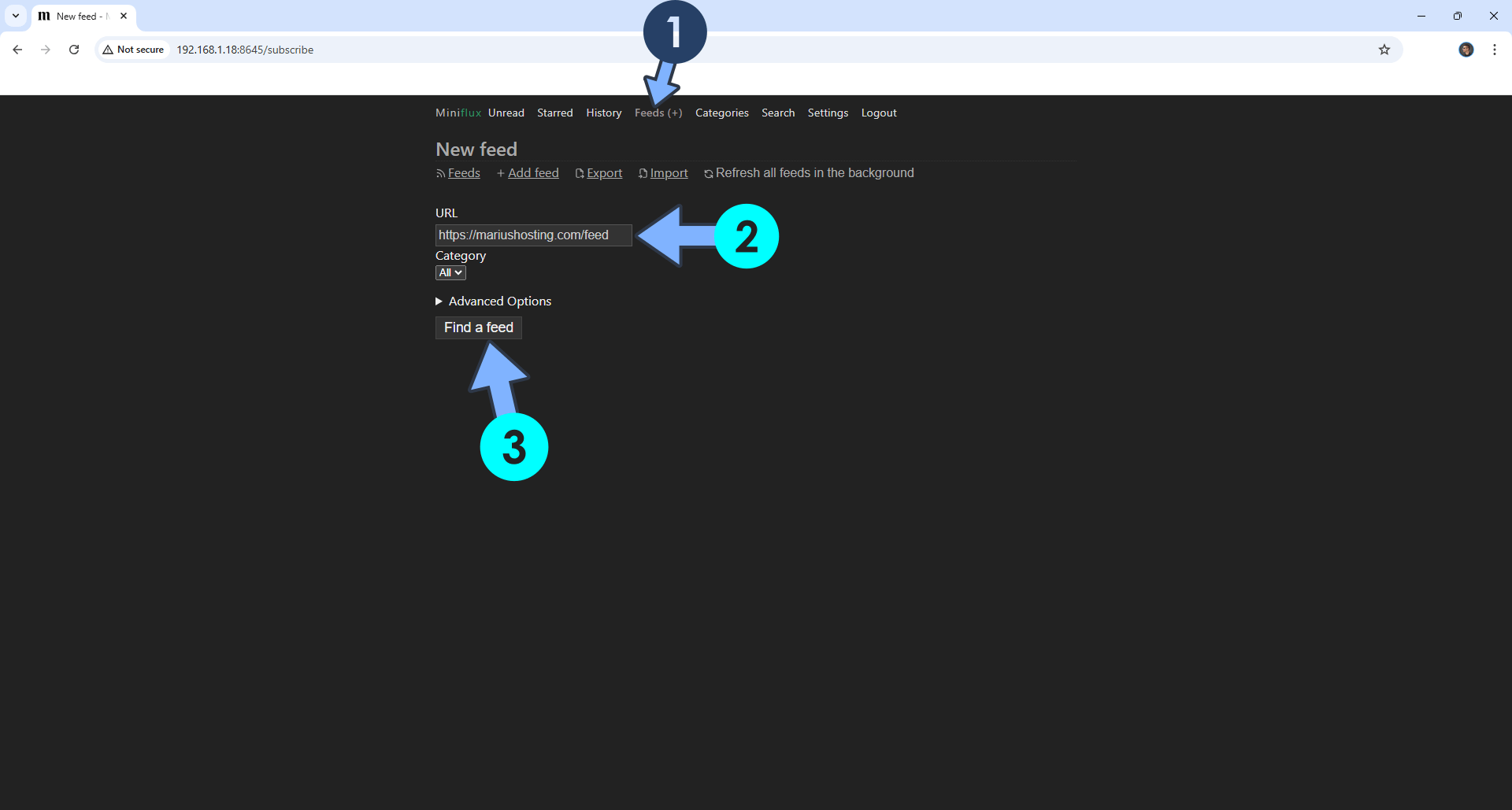
Your URL feed is now visible on Miniflux!
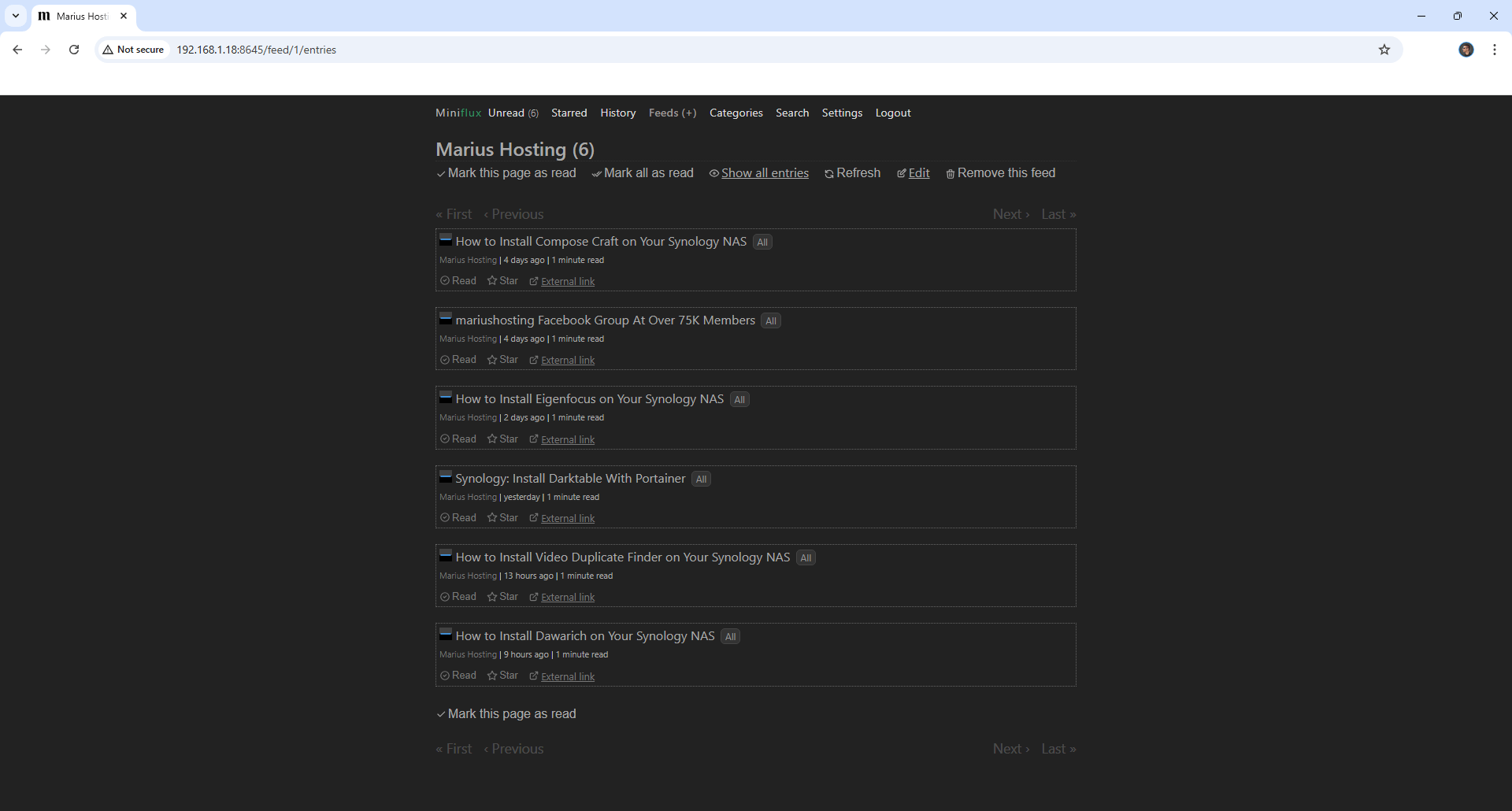
STEP 14
Make sure you have a synology.me Wildcard Certificate. Follow my guide to get a Wildcard Certificate. If you already have a synology.me Wildcard certificate, skip this STEP.
STEP 15
Go to Control Panel / Login Portal / Advanced Tab / click Reverse Proxy. Follow the instructions in the image below.
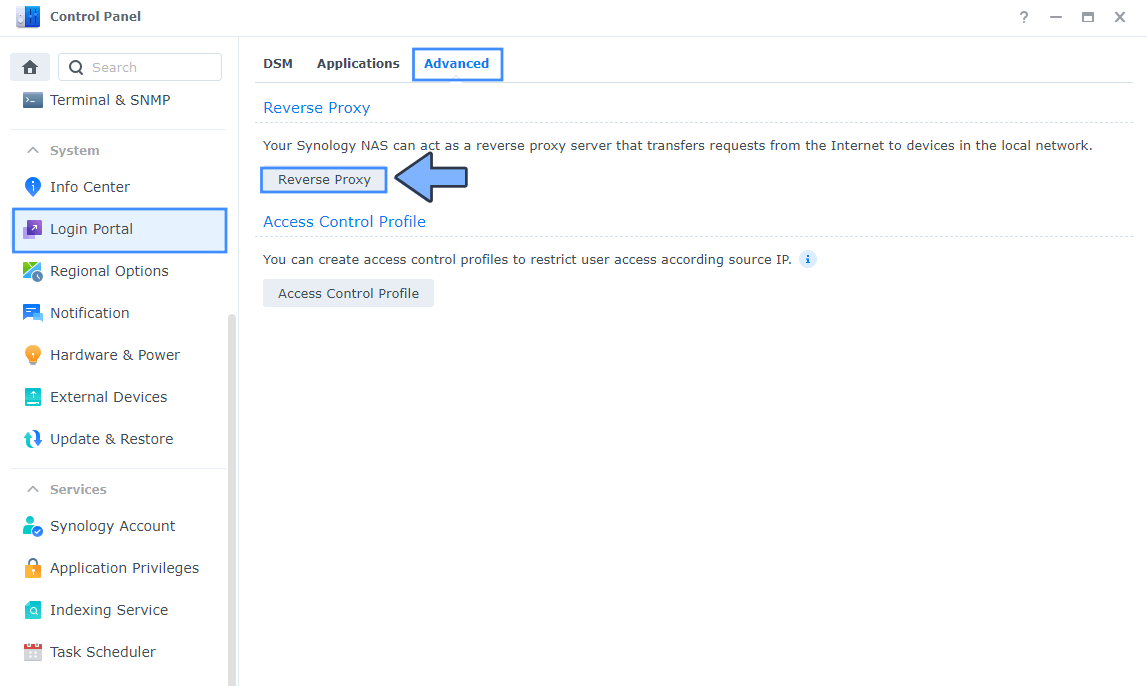
STEP 16
Now click the “Create” button. Follow the instructions in the image below.
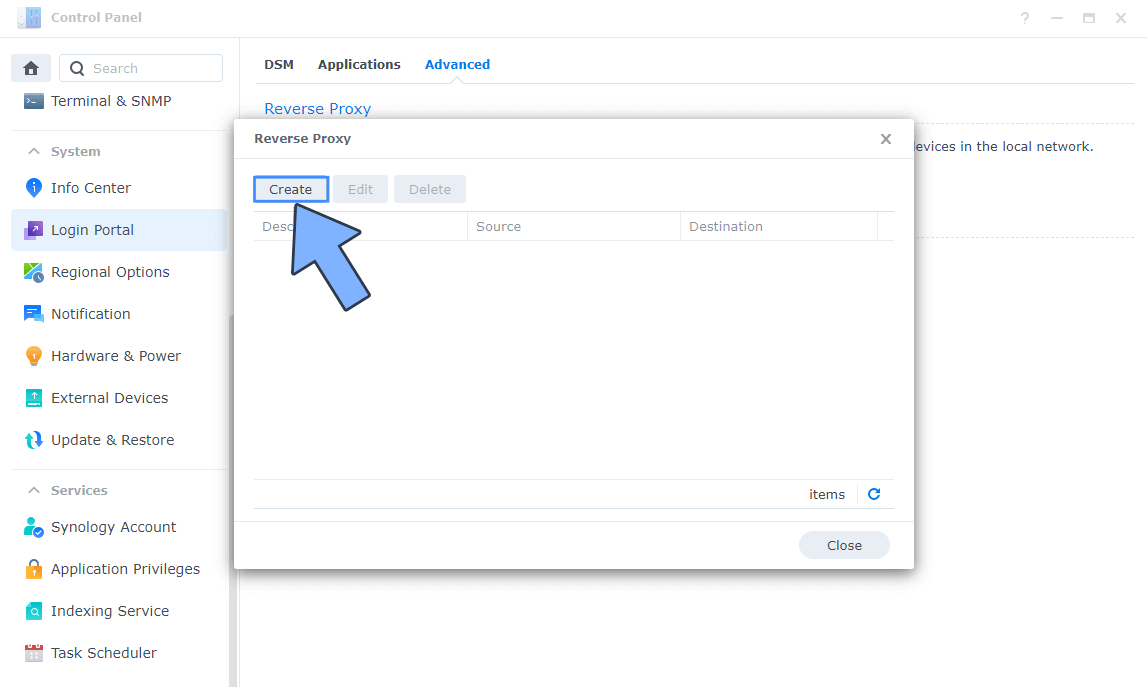
STEP 17
After you click the Create button, the window below will open. Follow the instructions in the image below.
On the General area, set the Reverse Proxy Name description: type in Miniflux. After that, add the following instructions:
Source:
Protocol: HTTPS
Hostname: miniflux.yourname.synology.me
Port: 443
Check Enable HSTS
Destination:
Protocol: HTTP
Hostname: localhost
Port: 8645
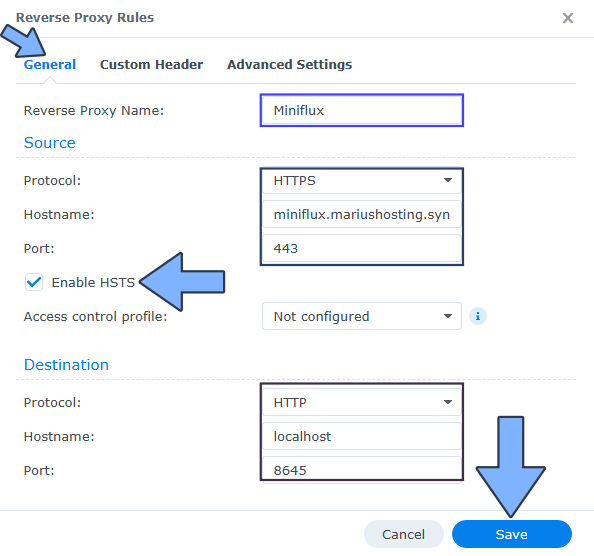
STEP 18
On the Reverse Proxy Rules click the Custom Header tab. Click Create and then, from the drop-down menu, click WebSocket. After you click on WebSocket, two Header Names and two Values will be automatically added. Click Save. Follow the instructions in the image below.

STEP 19
Go to Control Panel / Network / Connectivity / Check Enable HTTP/2 then click Apply. Follow the instructions in the image below.
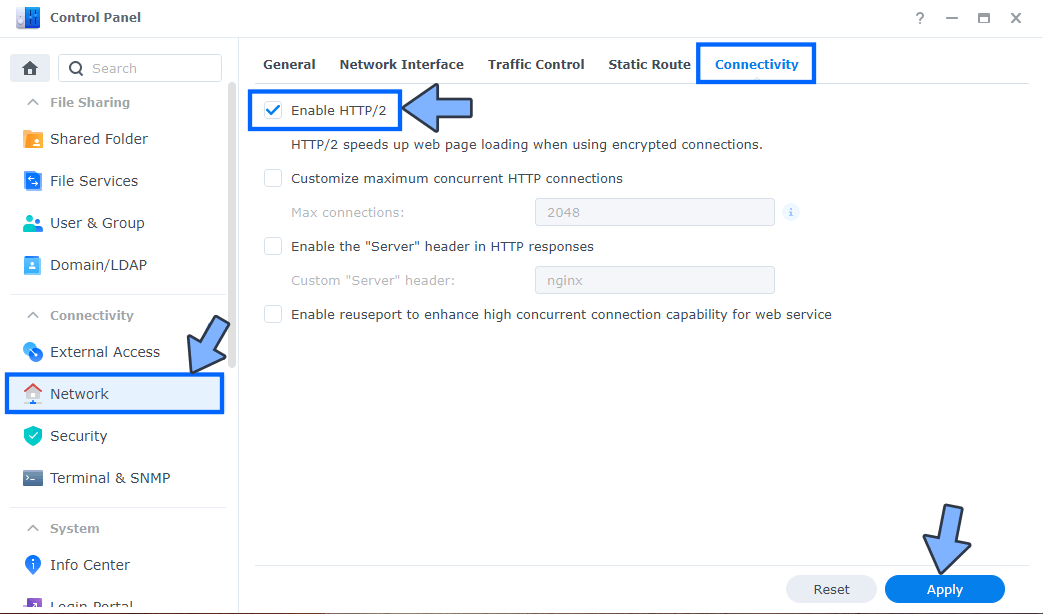
STEP 20
Go to Control Panel / Security / Advanced tab/ Check Enable HTTP Compression then click Apply. Follow the instructions in the image below.
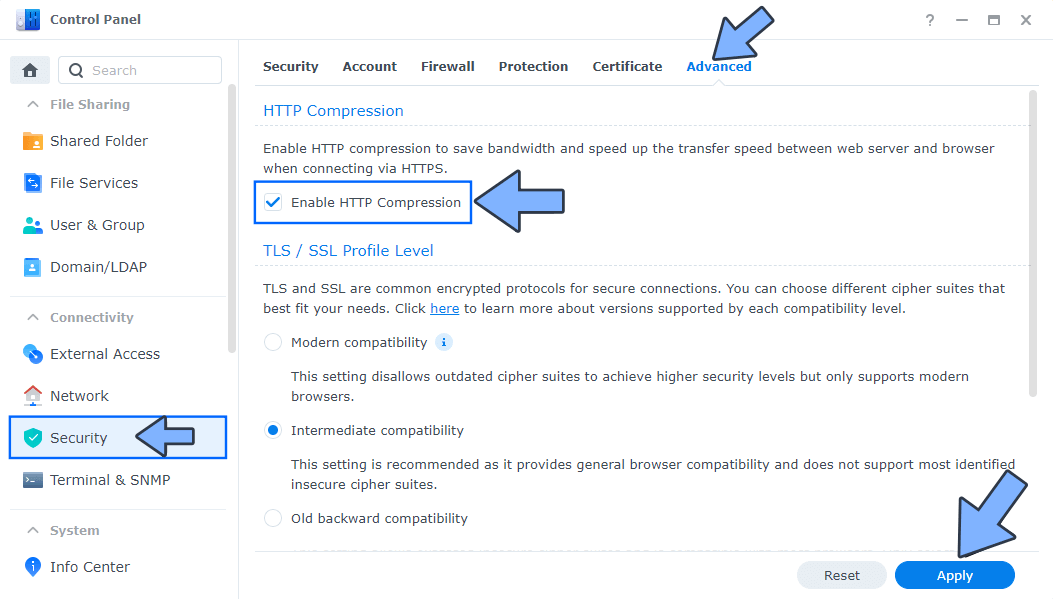
STEP 21
Now open your browser and type in your HTTPS/SSL certificate like this https://miniflux.yourname.synology.me that you have previously created at STEP 6. In my case it’s https://miniflux.mariushosting.synology.me If everything goes right, you will see the Miniflux Login page. Type in your own Username (ADMIN_USERNAME) and your own Password (ADMIN_PASSWORD) that you have previously added at STEP 5, then click Login. Follow the instructions in the image below.
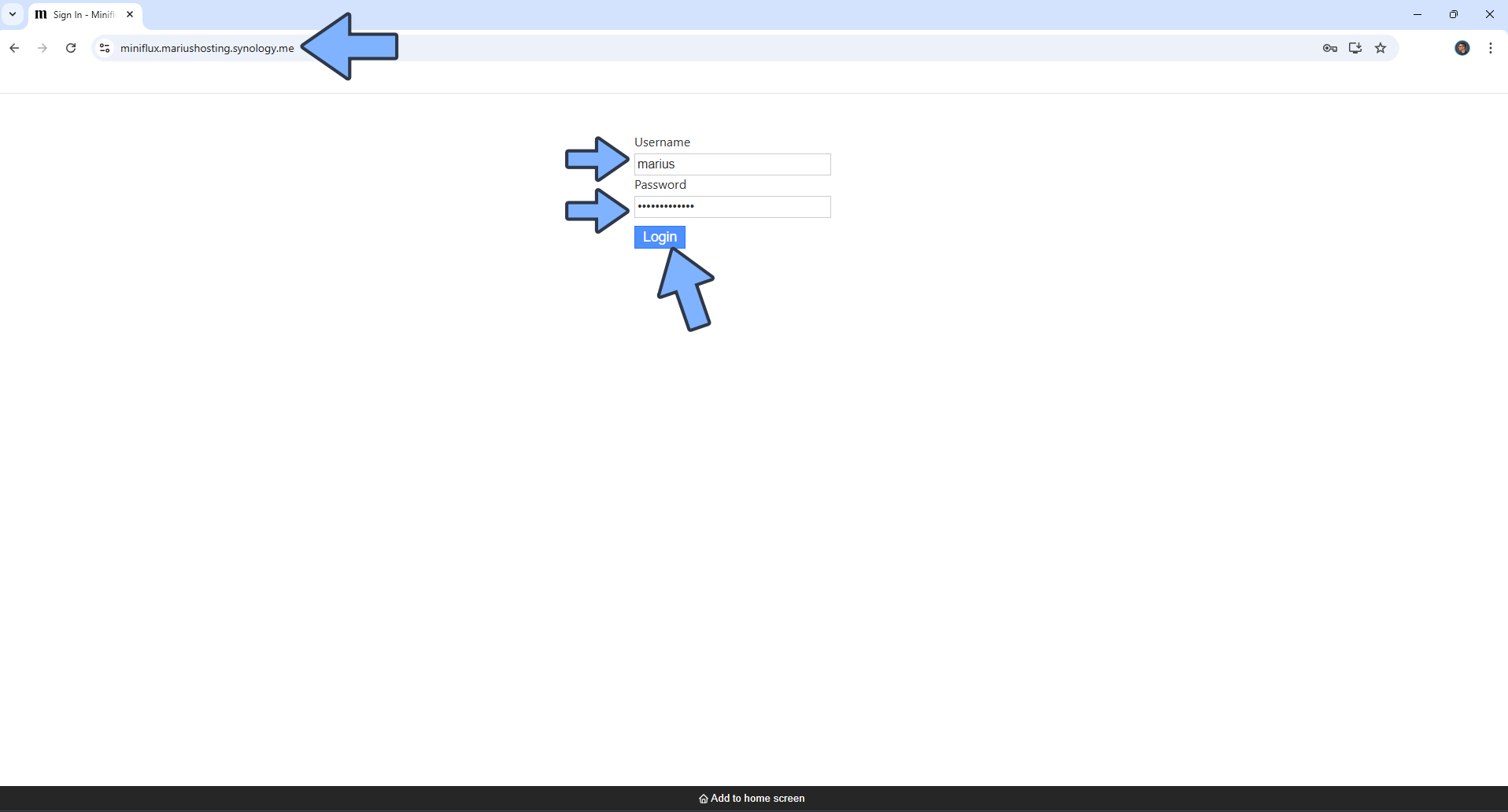
STEP 22
Your Miniflux Dashboard with SSL certificate at a glance!
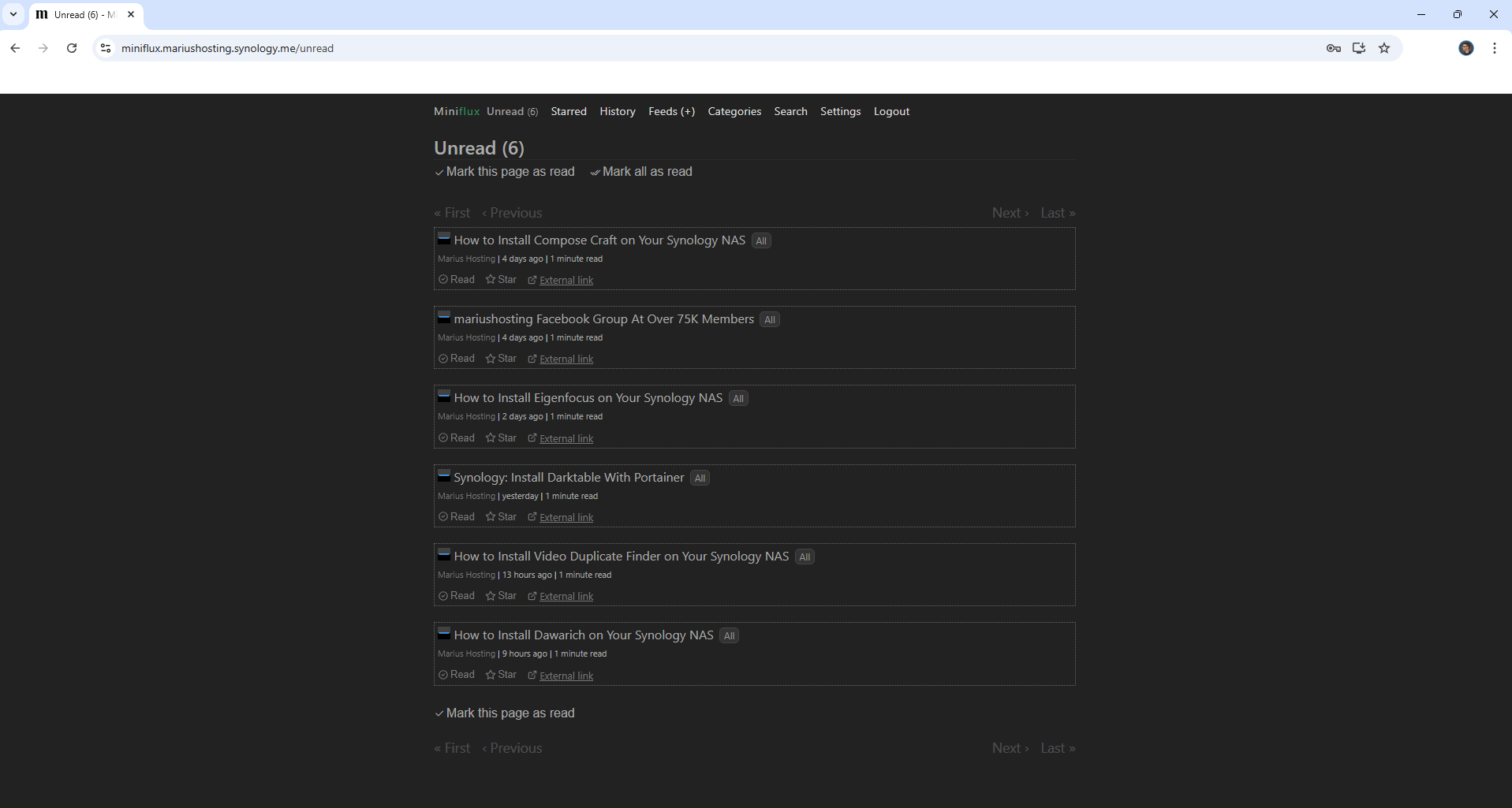
STEP 23
Install Netflux on Your Synology NAS. Netflux transforms your Miniflux into a sleek, modern experience!
Enjoy Miniflux!
If you encounter issues by using this container, make sure to check out the Common Docker issues article.
Note: If you want to run the Miniflux container over HTTPS, check out my guide on How to Run Docker Containers Over HTTPS.
Note: Can I run Docker on my Synology NAS? See the supported models.
Note: How to Back Up Docker Containers on your Synology NAS.
Note: Find out how to update the Miniflux container with the latest image.
Note: How to Free Disk Space on Your NAS if You Run Docker.
Note: How to Schedule Start & Stop For Docker Containers.
Note: How to Activate Email Notifications.
Note: How to Add Access Control Profile on Your NAS.
Note: How to Change Docker Containers Restart Policy.
Note: How to Use Docker Containers With VPN.
Note: Convert Docker Run Into Docker Compose.
Note: How to Clean Docker.
Note: How to Clean Docker Automatically.
Note: Best Practices When Using Docker and DDNS.
Note: Some Docker Containers Need WebSocket.
Note: Find out the Best NAS Models For Docker.
Note: Activate Gmail SMTP For Docker Containers.
This post was updated on Wednesday / February 18th, 2026 at 10:05 AM
